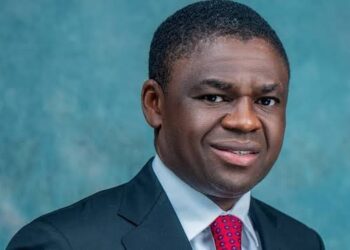Former student leaders and civil society stakeholders, Tuesday night, gathered in Abuja to honour Comrade Phillip Shaibu, Director General of the National Institute of Sports (NIS), in recognition of his recent appointment and long-standing commitment to social justice, resilience, and activism.
Among the notable voices at the reception was the Chairman, Partners for Electoral Reform, High Chief Ezenwa Nwagwu, who praised Shaibu’s courage and unyielding spirit, especially in the face of political adversity.
“What is significant is that he fought a battle that was very, very critical in the nature and complexion of our society. This is a man who was purportedly impeached,” Nwagwu said.
Recalling their shared background in the National Association of Nigerian Students (NANS), Chief Nwagwu reflected on Shaibu’s refusal to bow out quietly from political life following his impeachment as deputy governor.
“In the nature of politics in Nigeria, he would have handed it over to God. And if there wouldn’t be any mention by the former deputy governor because he was impeached. But he fought that battle with the courage, the candor, the resilience, the strength that all of us know that we inherited from our tradition,” he said.
Drawing on a recent example, he highlighted a wedding in Gombe where Nigerians from all political and ethnic backgrounds gathered in unity.
“There was a wedding in Gombe last weekend. There was no tribal marks in the attendance. There was no party affiliation. Whether you were APC, coalition, everybody went. In our own movements, we become very tendentious. Oh, Phillip was not part of us, we want to bridge that gap,” he said.
He emphasised the importance of unity and collective progress, warning against unhealthy expectations from public officeholders.
“Oh, people say, oh, you know, he was deputy governor. People have called me. How many people did he have? I said, did he become deputy governor to help you? After 30 years of graduating from university, you’re still looking for somebody to help you. There must be something fundamentally wrong with that,” he said.
According to Nwagwu, the reception was part of a new resolve among former comrades to celebrate one another in moments of progress.
“And if that is the basis for which we will not separate people, then we will take it upon ourselves. Myself, and other comrades in Abuja, we said, any of our person that is appointed anything, we will hold a reception in honor of that person. And it’s beginning with Philip,” he said.
He recalled a recent gathering in honour of the late comrade Abdullahi Kano as an example of their enduring solidarity.
“We tested something when our comrade Abdullahi Kano died. The same us, again, decided to do a night of vigil. And we planned for 40 people. We had 150 people attend. People flew from everywhere,” he said.
“Meaning that there is that hunger for us to always come together. And it doesn’t have to be only in bad circumstances. This is a joyful evening.”
Chief Nwagwu described Shaibu’s new role as a natural continuation of his activism and experience.
“Your appointment is also a testament to your doggedness. You can bet it that Philip would disrupt that capacity to disrupt for results, for better outcomes,” he said.
He added, “It is something that the country should move forward to. But much more than that, it is also a young man who, himself, is a sports person. So we are not going to be reinventing the wheel for him.
“He already has a clear idea where he is going to. And it is coming from where he grew. The struggles that he has reached, first as NAN president, a young NAN president, that we brought into the system.
“And as you can hear from testimonies in this place, he is already trained to confront the challenges that we have in the sports circle. Just be clear that it is going to be destructive.”
Reflecting on the legacy of student leadership, Nwagwu said the time had come to close ranks and build a common front for national transformation.
“People who are here today didn’t meet me as a student. So I am taking the responsibility to get us together in spite of the generation of student leadership that has happened. The idea is that first and foremost, we have been too separated. There is a need for us to come back together.
“And when we come back together, we will forge a common front to engage those issues, you know, that we even as young people confronted which are still there today. Some of the issues for which we were detained, some of us were expelled from the university and recalled. And we are getting, we are not getting younger.
“So we need to bond together, leverage our strengths and borrow muscles from each other to confront the challenges that we face,” he said.
